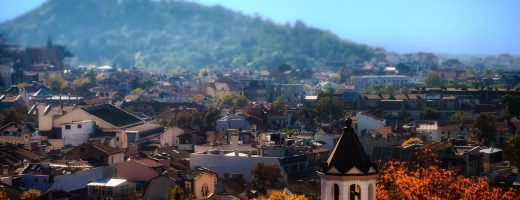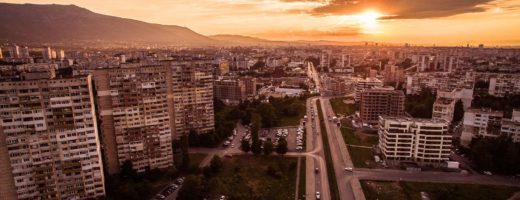Intro: Like many other eastern European countries, Bulgaria is in the throes of changing from a dim Soviet satellite to a free thinking-free enterprise nation of progress. Included in this shift are new laws protecting homosexuals. A drive through the countryside and some talks with LGBT folks in Sofia provided many images and insights into the old and new ways of modern Bulgaria.
Homosexual sex was legalised in 1968, making Bulgaria one of the first Eastern European countries to legalize gay sex. In 2002, the age of consent was equalized with that for heterosexual sex. There is no law against gays. All discrimination in law was abolished in 2002, except for laws on male prostitution. An anti-discrimination law, the Protection Against Discrimination Act, has existed since 2003. It prohibits discrimination on the basis of sexual orientation in all areas, including employment, the provision of goods and services, housing and education. Bulgaria, like most countries in Eastern Europe, tends to be socially conservative when it comes to such issues as homosexuality. However, the independent private media occasionally report on gay events, the national and the private television channels have cast films with gay themes, and gay-themed movies are shown in the cinemas. In addition, some famous Bulgarians have come out, suggesting that gay men and lesbians are becoming more visible in Bulgaria. The main LGBT rights organization in Bulgaria is BGO Gemini. The Bulgarian gay organization Gemini is a national advocacy organization, non-profit public entity based on membership principle, founded in 1992.

Bulgaria – Black Sea Coast: Varna to Nesebar
After World War II, Bulgaria became a communist state and part of the Eastern Bloc. In 1990, after the Revolutions of 1989, the Communist party gave up its monopoly on power and Bulgaria transitioned to democracy and free-market capitalism. Currently Bulgaria functions as a parliamentary democracy under a unitary constitutional republic. A member of the
Bulgaria – Central Area: Veliko, Shipka, Plovdiv
After World War II, Bulgaria became a communist state and part of the Eastern Bloc. In 1990, after the Revolutions of 1989, the Communist party gave up its monopoly on power and Bulgaria transitioned to democracy and free-market capitalism. Currently Bulgaria functions as a parliamentary democracy under a unitary constitutional republic. A member of the
Bulgaria – Sofia City
Bulgaria – Sofia City


